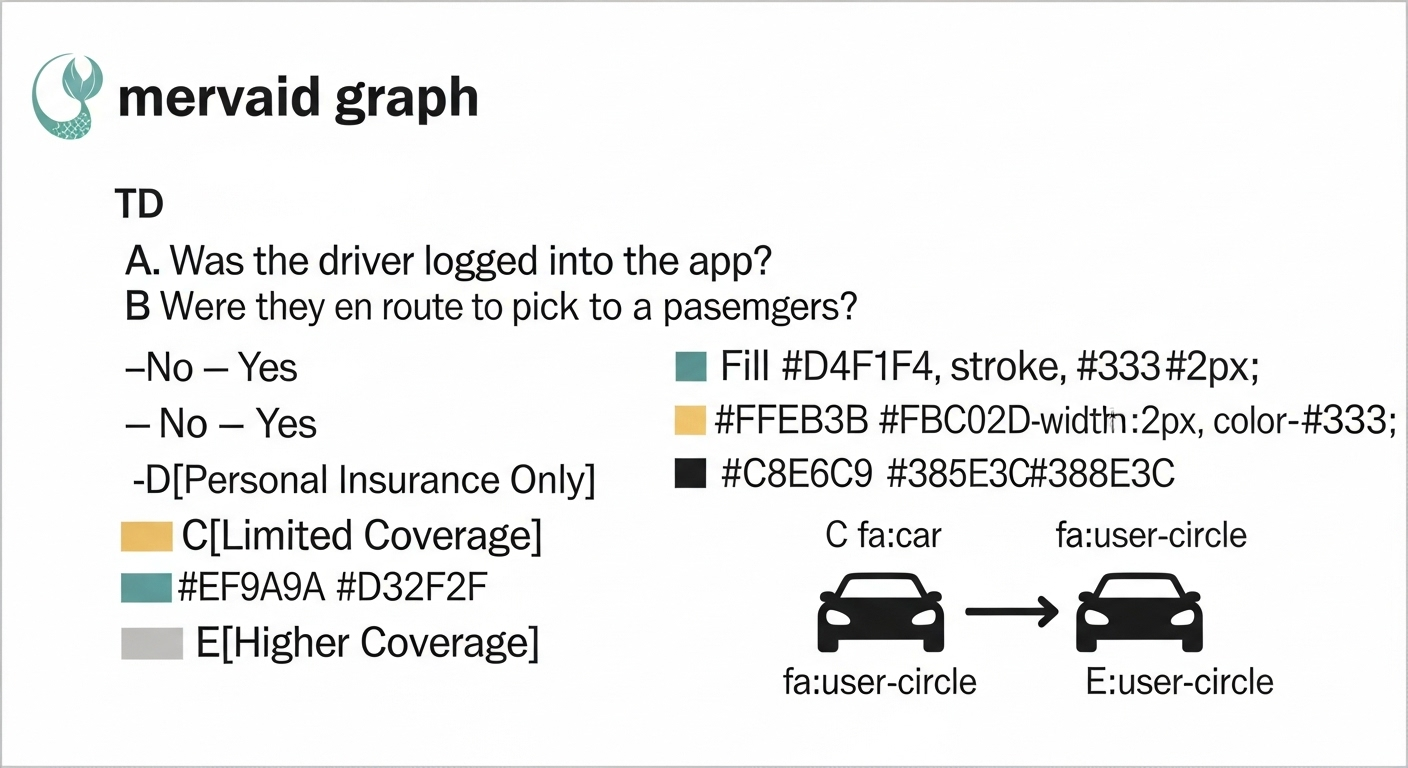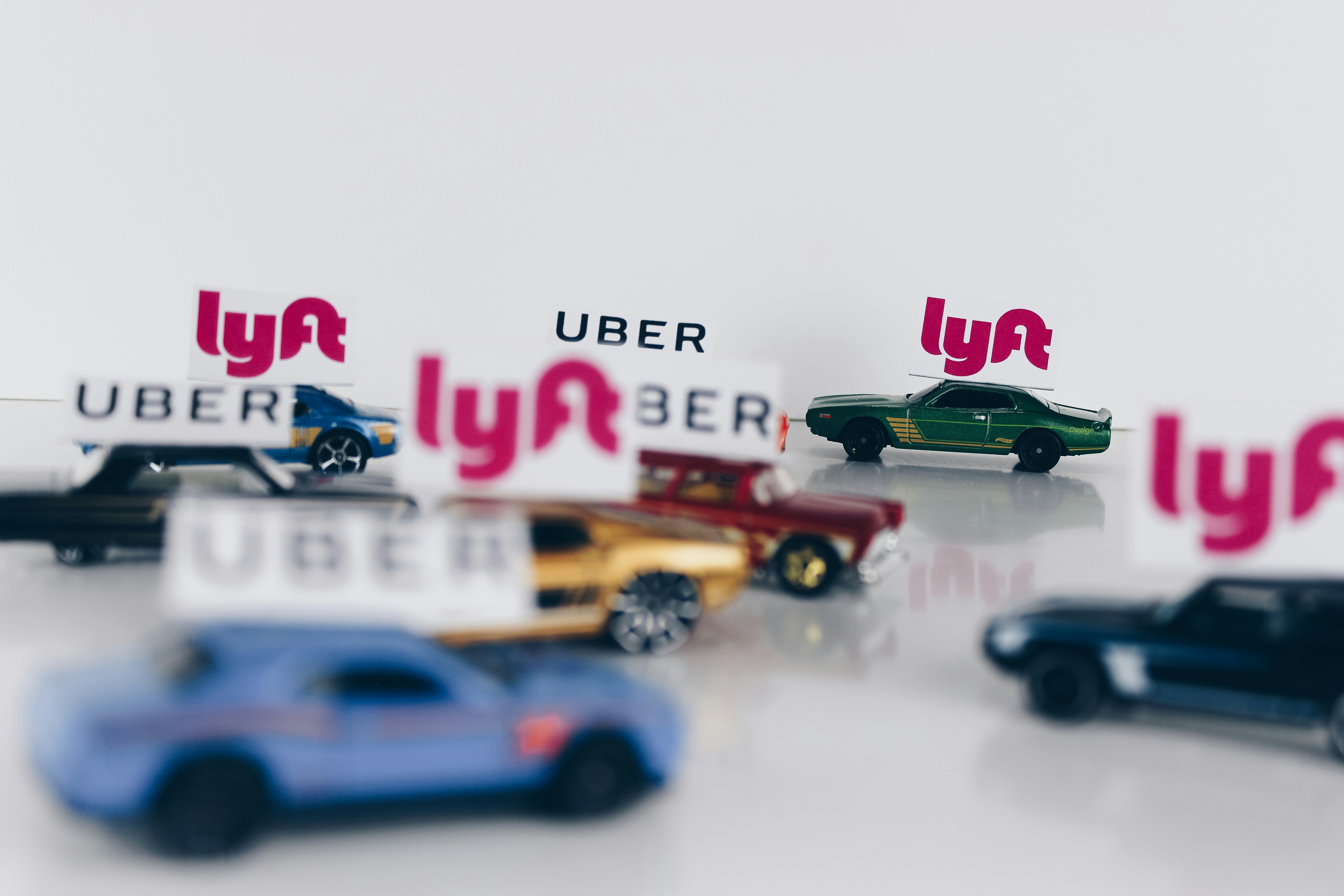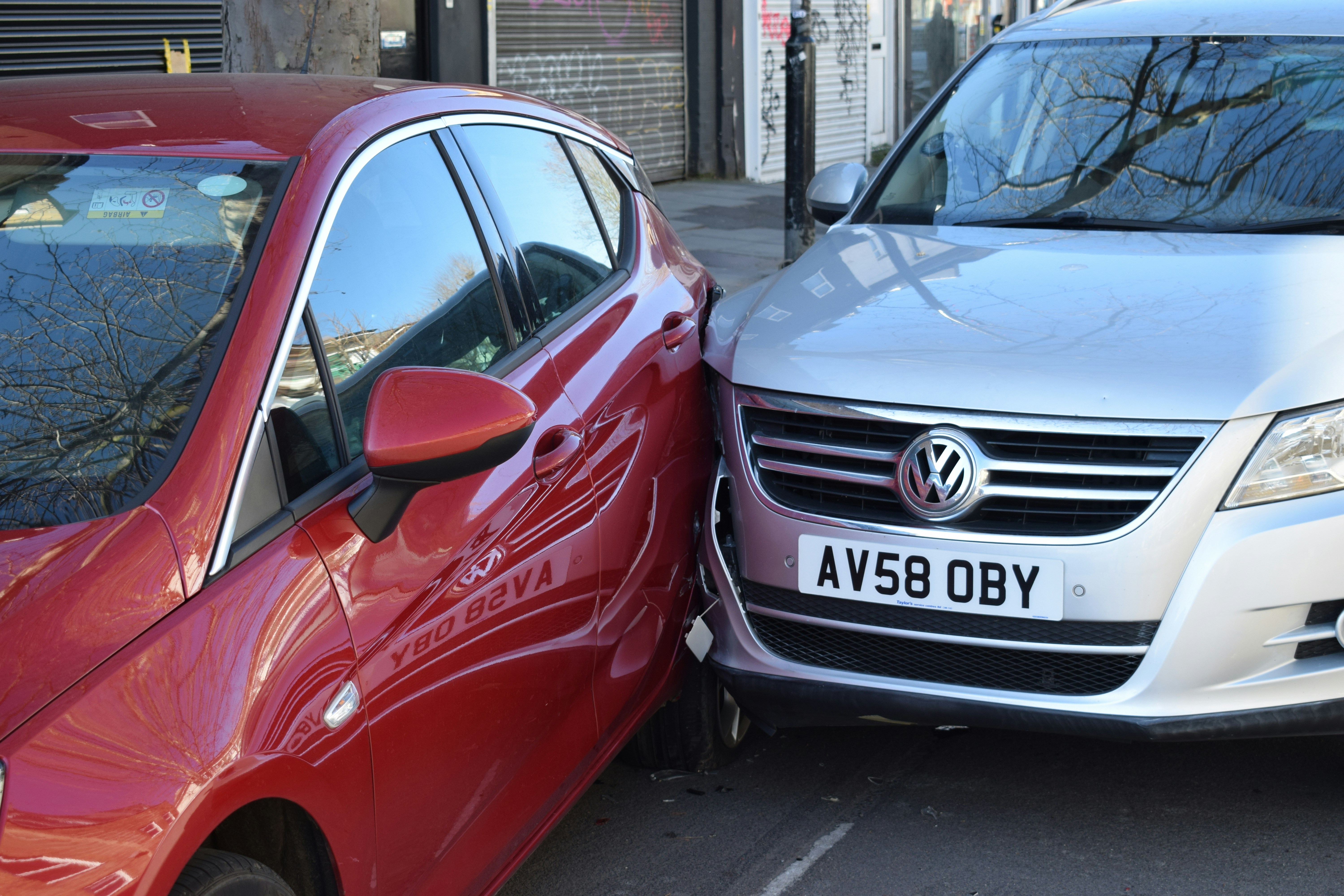In the chaotic moments following a car accident, your focus is on safety, shock, and the immediate aftermath. But a hidden danger looms, one that can impact your financial and physical recovery for years to come. Soon, your phone will ring. On the other end will be a friendly, concerned voice from Uber's insurance company. They will introduce themselves as an insurance adjuster, and their job, they’ll imply, is to help you. This is the single most critical moment in your accident claim, and your next words could determine its outcome. The most important thing you can do is understand that this person is not your ally.
The Unique Complexity of Rideshare Accidents

Uber accident insurance coverage varies depending on the driver's status at the time of the accident.
An Uber accident isn't like a typical two-car collision. It involves multiple layers of liability and intricate insurance policies that can shift depending on the Uber driver's status at the time of the crash. Was the driver logged into the app? Were they on their way to pick up a passenger? Did you have a ride in progress? Each scenario triggers a different level of insurance coverage, creating a complex legal landscape that is difficult for a victim to navigate alone. The sheer volume of rideshare vehicles on the road has also changed the dynamics of traffic safety. Research has found that the introduction of rideshare services correlates with a notable increase in crashes, meaning the risk is ever-present and the resulting claims are increasingly common, as noted in a 2019 University of Chicago study.
Why Direct Communication with Uber's Insurance Adjuster is a Risk
Speaking directly to the insurance adjuster for the rideshare company is a significant gamble. These professionals are highly trained negotiators whose primary objective is to protect their employer's financial interests. They are skilled at asking seemingly innocent questions designed to elicit responses that can be used to devalue or deny your claim. Any information you provide—from a casual comment about how you’re feeling to speculation about the accident—can be twisted and used against you.
Your Core Right: Protection from the Outset
From the moment an accident occurs, you have rights. You have the right to seek medical attention, the right to remain silent, and the right to legal representation. Exercising these rights is not an admission of guilt; it is a crucial act of self-preservation. By understanding that the claims process is an adversarial one, you can take the necessary steps to protect your interests from the very beginning.
Understanding the Adversary: Why Uber's Adjuster Isn't On Your Side
It’s essential to dismantle the misconception that an insurance adjuster works for you. They work for the insurance company, a for-profit entity. Their performance is often measured by how successfully they can resolve claims for the lowest possible amount.
The Adjuster's Primary Goal: Minimizing Payouts
The core function of an insurance adjuster is to investigate an accident claim and determine the lowest justifiable payout under the applicable insurance policies. Every dollar they save their company is a dollar that doesn't go toward your medical bills, lost wages, or pain and suffering. They achieve this by looking for inconsistencies in your story, evidence of pre-existing injuries, or any admission of fault, however minor. Their friendly demeanor is a tool used to build rapport and lower your guard.
Identifying the Insurance Company's Loyalty
The loyalty of the insurance company and its adjusters is unequivocally to their shareholders and bottom line. They are legally and contractually obligated to defend their insured party—in this case, Uber or the Uber driver. They have no such obligation to you, the injured party. This fundamental conflict of interest means that their goals are directly opposed to yours. Your goal is to receive full and fair compensation for your personal injury; their goal is to pay as little as possible.
The Tactics They Use: Traps and Leading Questions
Insurance adjusters employ a range of proven tactics to undermine accident claims. They may press you for a recorded statement before you've had time to process the event or consult with an attorney. They might ask leading questions like, "You were a bit distracted just before the crash, weren't you?" or "It sounds like your neck is just a little sore." They will also make a quick, low settlement offer, hoping you’ll accept it out of financial desperation before the full extent of your injuries and expenses is known.
Your Immediate Actions: Protecting Your Case BEFORE They Call
What you do in the hours and days after an Uber accident is critical. Taking the right steps can build a strong foundation for your claim and protect you from the insurance company's tactics.
Prioritize Medical Attention: Even Minor Symptoms Matter
Your health is the absolute first priority. Seek immediate medical attention, even if you feel fine. Adrenaline can mask pain, and some serious injuries, like concussions or internal damage, may not present symptoms right away. A medical professional’s evaluation creates an official record of your injuries, linking them directly to the car accident. Delaying treatment gives the insurance adjuster an opening to argue your injuries weren't caused by the crash.
Documenting the Accident Scene Thoroughly
If you are physically able, gather as much evidence as possible at the scene. Take photos and videos of the vehicle damage from multiple angles, any visible injuries, road conditions, and traffic signs. Get the names and contact information of the Uber driver, other drivers involved, and any witnesses. Make sure you get a copy of the police report, as it is a crucial piece of objective evidence.
Report the Incident to Uber, But Limit Details
You should report the accident through the Uber app. However, stick to the basic facts: who, what, where, and when. Do not offer opinions, speculate on who was at fault, or describe your injuries in detail. Simply state that an accident occurred and you were injured. This creates a record of the event without providing ammunition for the insurance adjuster to use against you later.
The Golden Rule: Your First Call Should Be to a Personal Injury Lawyer
After seeking medical care and documenting the scene, your very next call should be to an experienced Uber accident lawyer. This single step can fundamentally change the trajectory of your claim and shield you from the complexities of the legal and insurance systems.
Why Legal Representation is Non-Negotiable in an Uber Accident
The multi-layered insurance structure of a rideshare company makes these cases uniquely challenging. A skilled personal injury lawyer understands how to determine which insurance policy applies, how to prove liability, and how to accurately value your claim. Without legal advice, you are at a severe disadvantage against the resources of a massive insurance company and its seasoned legal team. Attempting to handle an accident claim on your own often results in a settlement that is a fraction of what you are truly owed.
How an Attorney Becomes Your Shield
Once you hire an accident lawyer, they become your advocate and protector. They will immediately notify the insurance company that you have legal representation. From that point on, all communication—including questions, requests for documents, and settlement offers—must go through your attorney. This immediately stops the adjuster from contacting you directly, preventing you from making any costly mistakes. Your lawyer handles the entire claims process, allowing you to focus on your recovery.
What NOT to Say (and How to Say "My Lawyer Will Handle This")
If an insurance adjuster calls before you have secured legal representation, knowing how to respond is critical. Your words have power, and the wrong ones can cause irreparable harm to your case.
The Dangers of Specific Details or Speculation
Never speculate about the cause of the accident or admit any degree of fault. Avoid giving detailed descriptions of your injuries. A simple "I'm still being evaluated by my doctors" is sufficient. Downplaying your injuries by saying "I'm okay" or "It's not too bad" will be recorded and used to minimize your claim for pain and suffering later, even if your condition worsens.
Refusing a Recorded Statement: It Can (and Will) Be Used Against You
An adjuster’s request for a recorded statement is a trap. They will tell you it’s a standard procedure required to process your claim, but you are under no legal obligation to provide one. The purpose of this recording is to lock you into a story early on, which they can later scrutinize for any minor inconsistency to discredit you. Politely but firmly decline this request.
The Power of Deferral: Polite but Firm Responses
You do not have to be rude, but you must be firm. A simple, powerful response is all you need. If the adjuster calls, you can say:
- "I am not prepared to discuss the details of the accident at this time."
- "I will not be providing a recorded statement."
- "All future communication can be directed to my attorney."
If you have not yet hired one, you can say, "I am in the process of seeking legal counsel, and they will be in contact with you." This communicates that you are protecting your rights and will not be manipulated.
Decoding Uber's Complex Insurance Coverage
The insurance landscape for a rideshare company is not straightforward. Understanding the basics reveals why an expert navigator is essential. With 7.6 billion rides facilitated in 2023, Uber's insurance system is designed to handle a high volume of incidents while protecting the company.
The Layers of Uber's Insurance Policies
Uber's insurance coverage operates in phases, depending on the driver's activity:
- Driver is Offline: The driver's personal auto insurance is the primary coverage.
- Driver is Online, Awaiting a Request: Uber provides a limited liability coverage policy. This often includes $50,000 per person and $100,000 per accident in bodily injury liability.
- Driver is En Route to a Pickup or Transporting a Passenger: Uber’s $1 million third-party liability coverage, along with uninsured/underinsured motorist coverage, becomes active.
Determining which policy applies is a critical first step that an adjuster may try to obscure to limit the available insurance coverage.
The Adjuster's Knowledge vs. Your Lack of It
The adjuster knows these policies inside and out. They understand every loophole, exclusion, and condition. They will use this knowledge imbalance to their advantage, potentially convincing you that a lower coverage limit applies or that you are not entitled to certain damages. An Uber accident lawyer levels this playing field instantly.
Building a Strong Claim: What Your Legal Team Does
Hiring a legal team is about more than just having someone to talk to the insurance company. It's about systematically building a powerful, evidence-based case designed to secure maximum compensation.
Comprehensive Documentation and Evidence Gathering
Your personal injury lawyer and their team will launch a full investigation into the accident. This includes obtaining the police report, gathering all your medical records and bills, interviewing witnesses, and, if necessary, hiring accident reconstruction experts. They compile every piece of evidence needed to prove liability and document the full extent of your damages.
Valuing Your Personal Injury Claim Accurately
A quick settlement offer rarely accounts for the full scope of your losses. Your legal team will carefully calculate all economic damages, including current and future medical bills, lost wages, and loss of future earning capacity. They will also assess non-economic damages, such as pain and suffering, emotional distress, and loss of quality of life. While the average car accident settlement amount can be around $30,000, a serious Uber accident claim involving significant injuries can be valued much higher, and an attorney ensures all factors are considered.
Navigating the Claims Process and Settlement Offers
The formal claims process is where legal representation truly demonstrates its value, transforming a stressful ordeal into a managed process.
Your Lawyer Manages All Communication and Negotiations
With an attorney on your side, you no longer have to worry about calls from insurance adjusters. Your lawyer handles all negotiations, presenting a carefully prepared demand package to the insurance company. They will skillfully counter lowball settlement offers with evidence-backed arguments, fighting to secure a figure that reflects the true cost of your injuries.
What Happens If a Fair Settlement Cannot Be Reached
Most personal injury cases are settled out of court. However, if the insurance company refuses to make a fair settlement offer, your lawyer will be prepared to file a lawsuit and take your case to trial. The credible threat of litigation is often the most powerful tool in convincing an insurer to negotiate in good faith. An unrepresented individual has very little leverage to make such a threat.
Conclusion
The moments after an Uber accident are disorienting, but they are also decisive. The most dangerous conversation you can have is the first one with Uber's insurance adjuster. Their job is to minimize your claim, and anything you say can be used to achieve that goal.
Your primary responsibilities are to seek medical care and protect your rights. You can accomplish the latter by following a simple but powerful rule: do not speak to the adjuster. Instead, channel all communication through an experienced Uber accident lawyer. This step is not aggressive; it is a necessary defense. A qualified legal team will shield you from adjuster tactics, navigate the complexities of rideshare insurance policies, and build a robust case to recover the full compensation you deserve for your medical bills, lost wages, and pain and suffering. By letting a professional advocate for you, you reclaim control and give yourself the best possible chance to focus on what truly matters: your health and recovery.





